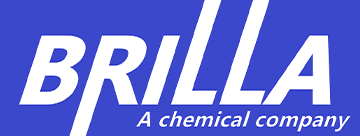Sodium lauryl sulfate (SLS) is a surfactant found in many everyday products. It’s a chemical that reduces the surface tension of liquids, allowing them to spread and mix more easily. Let’s explore the various applications of SLS.
What is Sodium Lauryl Sulfate?
SLS is a synthetic detergent that is derived from coconut or palm kernel oil. It’s a clear or slightly yellow liquid that is soluble in water and alcohol. Due to its excellent foaming and cleansing properties, SLS is widely used in a variety of products.
Common Uses of Sodium Lauryl Sulfate
Personal Care Products:
Shampoos and Body Wash: SLS is a primary ingredient in many shampoos and body washes due to its ability to create a rich lather and remove dirt and oil.
Toothpaste: It acts as a foaming agent and helps to remove plaque.
Facial Cleansers: SLS is found in many facial cleansers, though milder forms are often used to avoid irritating sensitive skin.
Household Cleaners:
Dishwashing Liquid: SLS is a key ingredient in dishwashing liquids, helping to cut through grease and grime.
Laundry Detergent: It acts as a surfactant, helping to loosen dirt and stains from fabrics.
Industrial Applications:
Textile Industry: SLS is used in textile processing to help level dyes and improve the softness of fabrics.
Automotive Industry: It’s found in car washes and other automotive cleaning products.
Why is SLS so Widely Used?
Effective Cleansing: SLS is excellent at removing dirt, oil, and grease.
Cost-Effective: It’s a relatively inexpensive chemical to produce.
Versatile: It can be used in a wide range of products.
Safety Concerns and Alternatives
While SLS is generally considered safe for most people, some individuals may experience skin irritation or allergic reactions. If you have sensitive skin, consider using products labeled “SLS-free” or “sulfate-free.”
In conclusion, sodium lauryl sulfate is a versatile and effective surfactant with a wide range of applications. While it is generally considered safe, individuals with sensitive skin may want to consider milder alternatives. Understanding the benefits and potential drawbacks of SLS can help consumers make informed choices about the products they use.
Post time: Jul-31-2024





